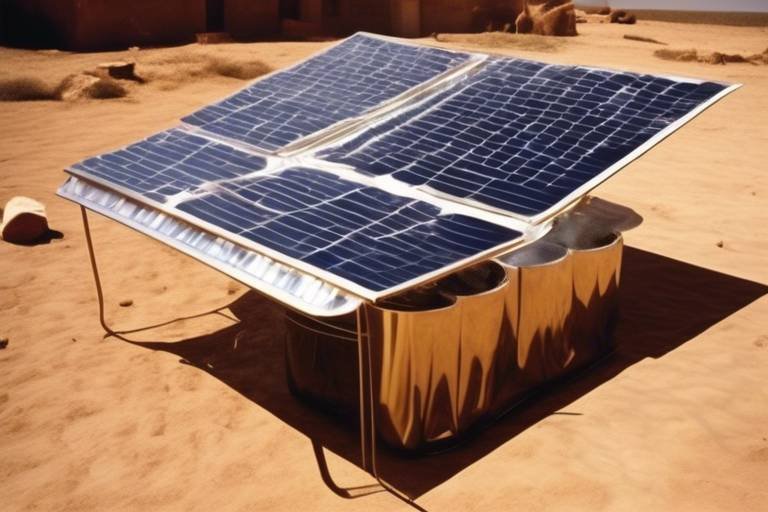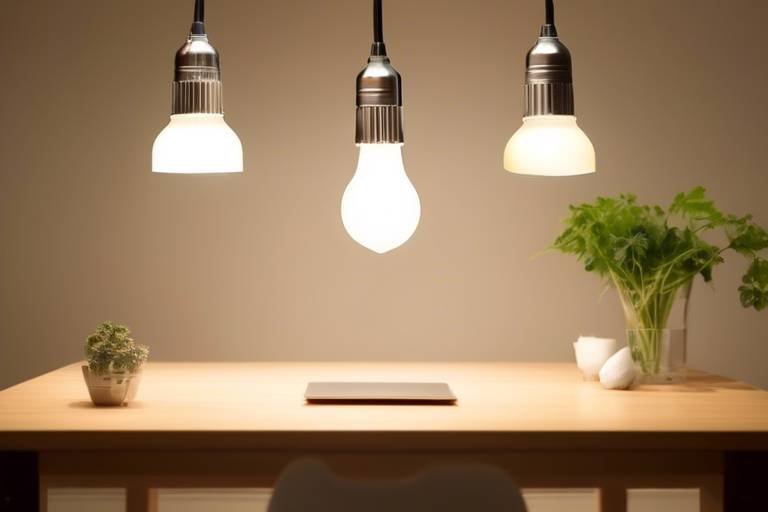The Importance of Energy Efficiency in Sustainable Living
In today's fast-paced world, where the effects of climate change are becoming increasingly evident, the concept of energy efficiency has emerged as a beacon of hope for sustainable living. But what exactly does energy efficiency mean? Simply put, it refers to the practice of using less energy to provide the same service. Imagine being able to enjoy the same comforts of home while consuming less power—sounds great, right? This not only helps in reducing waste and conserving precious resources but also ensures that we maintain our comfort and productivity in our daily lives.
As we delve deeper into the significance of energy efficiency, it becomes clear that it plays a critical role in shaping a sustainable future. Picture this: every time you switch off a light bulb or choose an energy-efficient appliance, you're not just saving a few cents on your utility bill; you're actively contributing to a larger movement aimed at minimizing our environmental footprint. It's like being part of a team where every small action adds up to create a significant impact. By adopting energy-efficient practices, individuals and communities alike can work together to reduce energy consumption and combat climate change.
Moreover, energy efficiency is not just about technology and gadgets; it's about a mindset shift towards sustainability. It encourages us to rethink our daily habits and make conscious choices that benefit both ourselves and the planet. For instance, consider the power of simple lifestyle changes—like using natural light during the day or unplugging devices when not in use. These actions may seem trivial, but collectively, they can lead to substantial energy savings. In essence, energy efficiency is a vital component of sustainable living, and embracing it can lead to a healthier planet for future generations.
Energy efficiency is not just a buzzword; it's a fundamental principle that can help us navigate the challenges of modern life while safeguarding our environment. By using less energy to perform the same tasks, we can significantly reduce our carbon footprint and conserve valuable resources. This principle is essential in a world where energy demands are skyrocketing, and natural resources are dwindling. When we talk about energy efficiency, we're essentially discussing a smarter way of living—one that prioritizes sustainability without compromising our quality of life.
Implementing energy-efficient practices offers a plethora of benefits that extend beyond mere cost savings. It’s about creating a healthier environment, both for ourselves and the planet. By reducing energy consumption, we not only lower our utility bills but also decrease greenhouse gas emissions, which are a major contributor to climate change. It's a win-win situation! Imagine living in a community where the air is cleaner, the energy is more affordable, and everyone is working towards a common goal of sustainability.
One of the most immediate benefits of energy efficiency is the reduction in energy bills. With the right energy-saving measures, homeowners can see substantial financial savings over time. For example, upgrading to energy-efficient appliances can lead to significant reductions in monthly utility costs. In fact, studies have shown that households can save up to 30% on their energy bills by making these simple upgrades. Think of it as an investment in your future—less money spent on energy means more money for things that truly matter.
Upgrading insulation, windows, and appliances can significantly enhance a home's energy efficiency. These improvements not only yield long-term savings but also increase comfort levels within the home. For instance, better insulation keeps your home warm in the winter and cool in the summer, reducing the need for heating and cooling systems to work overtime. It’s like wrapping your home in a cozy blanket—keeping the temperature just right while saving energy!
Simple lifestyle changes can make a big difference in energy consumption. Turning off lights when leaving a room, using energy-efficient bulbs, and being mindful of energy usage can collectively lead to significant savings. It’s about cultivating habits that promote energy efficiency in our daily lives. For example, consider how often you leave devices plugged in overnight; unplugging them can save energy without sacrificing convenience. These small actions, when adopted by many, create a ripple effect that leads to a more sustainable future.
Energy efficiency directly correlates with reduced greenhouse gas emissions, making it a crucial factor in combating climate change. By adopting energy-efficient technologies and practices, we can significantly lower our carbon footprint. Imagine if every household in your community made a commitment to energy efficiency—together, we could create a cleaner, healthier environment for everyone. The positive environmental outcomes of embracing energy efficiency are profound, and they contribute to a more sustainable planet for generations to come.
So, how can we enhance energy efficiency in our lives? This section outlines practical strategies that individuals and businesses can adopt. From technology upgrades to behavioral adjustments, there are numerous ways to promote sustainability. Whether it’s investing in smart technology or participating in community initiatives, every step counts towards a greener future.
The rise of smart technology offers innovative solutions for energy management. Devices like smart thermostats and energy monitors can optimize energy use, ensuring that we only consume what we need. Imagine having a thermostat that learns your schedule and adjusts the temperature accordingly—no more wasted energy! These advancements not only enhance comfort but also provide significant savings on energy bills.
Community programs play a vital role in promoting energy efficiency. Local initiatives can foster collective action towards a more sustainable energy future. Whether it's organizing energy-saving workshops or community-wide challenges to reduce consumption, these efforts can galvanize entire neighborhoods to work together in their pursuit of sustainability. After all, when we come together, our impact is magnified.
- What is energy efficiency? Energy efficiency refers to using less energy to provide the same service, helping to reduce waste and conserve resources.
- How can I save money with energy efficiency? By implementing energy-saving measures like upgrading appliances and improving home insulation, you can significantly reduce your energy bills.
- What are some simple changes I can make at home? Simple actions like turning off lights, using energy-efficient bulbs, and unplugging devices can lead to substantial energy savings.
- How does energy efficiency impact the environment? Energy efficiency reduces greenhouse gas emissions and contributes to a healthier planet by minimizing our carbon footprint.
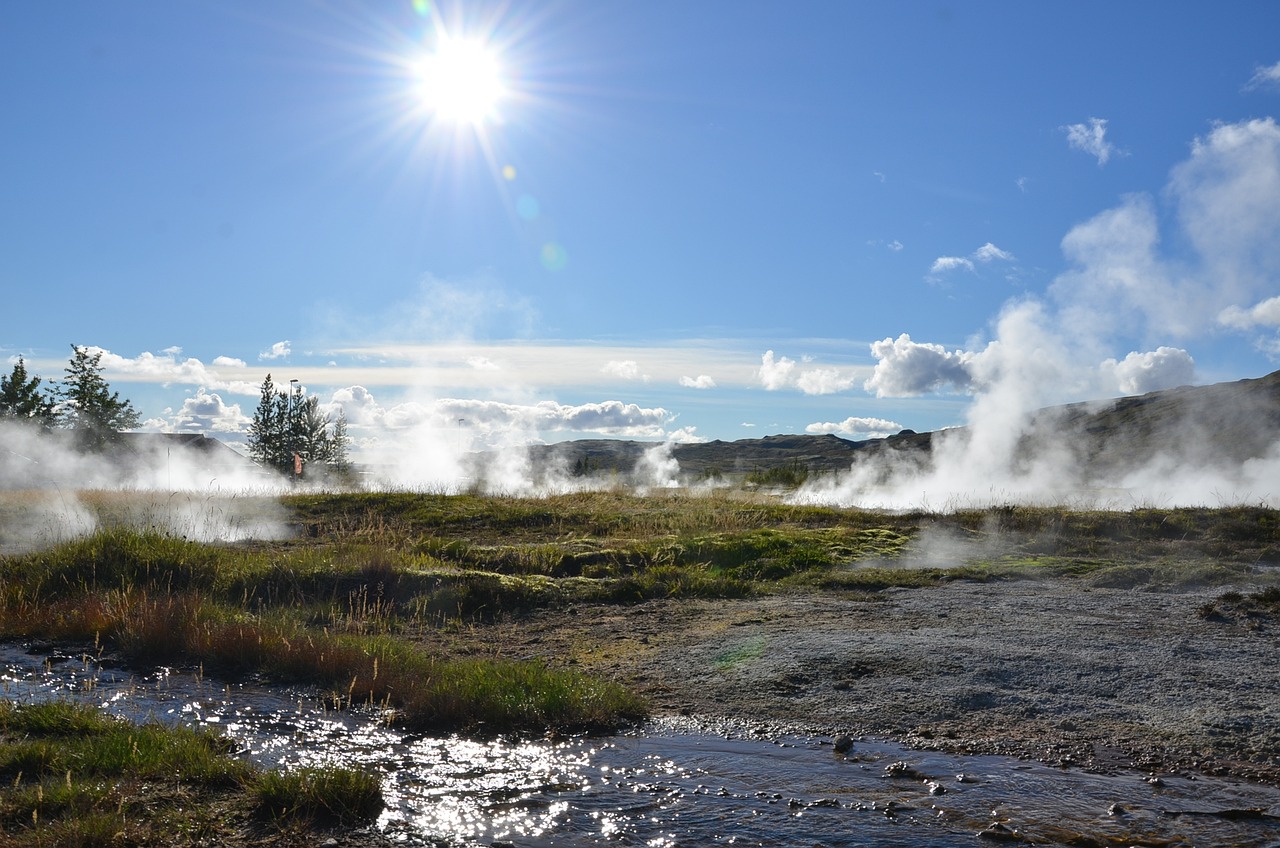
Understanding Energy Efficiency
This article explores how energy efficiency plays a critical role in sustainable living, its benefits, and practical steps individuals and communities can take to reduce energy consumption and environmental impact.
Energy efficiency is more than just a buzzword; it’s a crucial concept that refers to the practice of using less energy to provide the same level of service. Imagine a world where we can maintain our comfort and productivity while consuming fewer resources. It’s like driving a fuel-efficient car that gets you to the same destination while using less gas. In our daily lives, energy efficiency helps us reduce waste and conserve valuable resources, all while allowing us to enjoy the same quality of life.
At its core, energy efficiency means optimizing the way we use energy in our homes, workplaces, and communities. For example, consider how we heat our homes during the chilly winter months. Instead of cranking up the thermostat, we can seal drafts, add insulation, or even use energy-efficient heating systems that require less energy to keep us warm. This not only saves money but also minimizes our environmental footprint.
Furthermore, the significance of energy efficiency extends beyond individual actions; it has a ripple effect on our communities and the planet. When we collectively embrace energy-efficient practices, we can drastically reduce the demand for energy production, which often relies on fossil fuels that contribute to climate change. By making smarter choices about how we consume energy, we’re not just saving ourselves a few bucks; we’re also playing a part in preserving the environment for future generations.
To illustrate the impact of energy efficiency, let’s look at some statistics:
| Energy Source | Energy Saved (in kWh) | CO2 Emissions Reduced (in tons) |
|---|---|---|
| Residential Energy Efficiency Improvements | 3,000 | 2.5 |
| Commercial Energy Efficiency Measures | 5,000 | 4.0 |
| Industrial Energy Efficiency Upgrades | 10,000 | 8.5 |
As you can see, the numbers speak volumes about the potential for energy savings and the reduction of greenhouse gas emissions. Each small change we make can lead to substantial benefits, not just for ourselves but for the entire planet.
In summary, understanding energy efficiency is about recognizing the power of our choices. By adopting energy-efficient practices, we can enjoy a comfortable lifestyle while significantly reducing our environmental impact. It’s a win-win situation that benefits our wallets, our health, and our planet.
Implementing energy-efficient practices offers numerous benefits, including cost savings, reduced environmental impact, and improved health. Here, we delve into how these advantages contribute to a more sustainable future.
One of the most immediate benefits of energy efficiency is the reduction in energy bills. This section discusses how energy-saving measures can lead to substantial financial savings over time.
Upgrading insulation, windows, and appliances can significantly enhance a home's energy efficiency. This subheading covers the most effective home improvements that yield long-term savings and comfort.
Simple lifestyle changes, such as turning off lights and using energy-efficient bulbs, can make a big difference. Here, we explore how everyday actions contribute to energy savings.
Energy efficiency directly correlates with reduced greenhouse gas emissions. This section highlights the positive environmental outcomes of adopting energy-efficient technologies and practices.
This section outlines practical strategies individuals and businesses can adopt to enhance energy efficiency, from technology upgrades to behavioral adjustments that promote sustainability.
The rise of smart technology offers innovative solutions for energy management. Here, we discuss how devices like smart thermostats and energy monitors can optimize energy use.
Community programs play a vital role in promoting energy efficiency. This subheading examines how local initiatives can foster collective action towards a more sustainable energy future.
Q: What is energy efficiency?
A: Energy efficiency means using less energy to provide the same service, helping to reduce waste and conserve resources.
Q: How can I improve energy efficiency in my home?
A: You can improve energy efficiency by upgrading insulation, using energy-efficient appliances, and adopting simple behavioral changes like turning off lights when not in use.
Q: What are the environmental benefits of energy efficiency?
A: Energy efficiency helps reduce greenhouse gas emissions, which contributes to combating climate change and protecting the environment.
Q: Are there financial benefits to being energy efficient?
A: Yes! Implementing energy-efficient practices can lead to significant savings on energy bills over time.

Benefits of Energy Efficiency
Implementing energy-efficient practices offers a plethora of advantages that extend far beyond mere cost savings. Imagine a world where your energy bills are significantly lower, your home is more comfortable, and your carbon footprint shrinks. Sounds appealing, right? Well, that's precisely what energy efficiency can do for you. By reducing energy consumption, we not only save money but also contribute to a healthier planet. Let's delve into the specific benefits that make energy efficiency a cornerstone of sustainable living.
One of the most immediate benefits of adopting energy-efficient practices is the substantial cost savings it brings. When you invest in energy-efficient appliances or make simple changes like switching to LED bulbs, you're not just spending money; you're making a smart investment that pays off in the long run. Over time, these savings can accumulate significantly, allowing you to allocate your hard-earned cash to other important areas of your life, like travel, education, or simply enjoying more leisure time. According to the U.S. Department of Energy, households that adopt energy-saving measures can save anywhere from 10% to 50% on their energy bills.
In addition to financial benefits, energy efficiency has a profound impact on the environment. By using less energy, we reduce the demand for fossil fuels, which are the primary source of greenhouse gas emissions. This is crucial because lower emissions mean cleaner air and a healthier planet. The less energy we consume, the fewer resources we deplete, paving the way for a sustainable future. For instance, the energy saved by using energy-efficient appliances can lead to a reduction of up to 1.5 billion tons of carbon dioxide emissions per year. That's equivalent to taking 25 million cars off the road!
Moreover, embracing energy efficiency can lead to improved health outcomes. Poor energy practices often result in inadequate heating or cooling, leading to discomfort and potential health risks. By ensuring your home is energy-efficient, you create a more stable and comfortable living environment. This not only affects your physical well-being but also enhances your mental health. Imagine coming home to a cozy, well-lit space that feels just right—no more battling with drafts or flickering lights! Additionally, reduced pollution from less energy consumption means cleaner air, which is crucial for respiratory health.
To summarize, the benefits of energy efficiency are far-reaching and multifaceted. From significant cost savings to a positive environmental impact and enhanced health, the advantages are compelling. By making energy-efficient choices, we not only improve our own lives but also contribute to a more sustainable world for future generations. So, why not take that first step towards energy efficiency today? Your wallet and the planet will thank you!

Cost Savings
One of the most immediate benefits of energy efficiency is the reduction in energy bills. Imagine opening your monthly utility statement and feeling a wave of relief instead of dread. That’s the power of energy efficiency! When you implement energy-saving measures, you can significantly cut down on your expenses over time. For instance, by simply switching to energy-efficient appliances, you might notice a drop in your electricity consumption by up to 30%! This can translate into substantial savings that can be redirected towards other essential needs or even fun activities.
Let’s break it down a bit further. Consider the average household, which spends around $2,000 annually on energy bills. If you manage to save just 20% through energy-efficient practices, you’re looking at a whopping $400 back in your pocket each year! That’s like a mini-vacation or a fancy dinner out every year, just for making smarter choices at home.
To visualize the impact of these savings, take a look at the table below that outlines potential savings from various energy-efficient upgrades:
| Upgrade | Annual Savings | Initial Cost | Payback Period |
|---|---|---|---|
| LED Lighting | $100 | $200 | 2 years |
| Smart Thermostat | $150 | $250 | 1.67 years |
| High-Efficiency Appliances | $300 | $1,500 | 5 years |
| Improved Insulation | $200 | $1,000 | 5 years |
As you can see, the initial investment in energy-efficient upgrades can pay off surprisingly quickly. Each upgrade not only reduces your energy consumption but also contributes to a more comfortable home environment. Who wouldn’t want to bask in a cozy atmosphere while knowing they’re saving money?
In addition to these upgrades, behavioral changes can also lead to significant savings. Simple actions like turning off lights when you leave a room, unplugging devices that aren’t in use, and using energy-efficient bulbs can add up. You might be surprised to learn that these small adjustments can lead to an average savings of $50 to $100 per year. It’s like finding money in your couch cushions, only it’s the result of being mindful about your energy use!
Ultimately, the journey towards energy efficiency is not just about saving money; it’s about fostering a mindset of sustainability. By recognizing the financial benefits, you’ll be more motivated to make lasting changes that benefit both your wallet and the planet. So, are you ready to dive into energy efficiency and start reaping the rewards?
- What are some easy ways to improve energy efficiency at home?
Simple changes like switching to LED bulbs, using a programmable thermostat, and sealing windows and doors can significantly improve energy efficiency.
- How much can I save by upgrading to energy-efficient appliances?
Upgrading to energy-efficient appliances can save you anywhere from $100 to $300 annually, depending on your usage.
- Are there any government incentives for making energy-efficient upgrades?
Yes, many governments offer tax credits, rebates, and financing options to encourage homeowners to invest in energy efficiency.
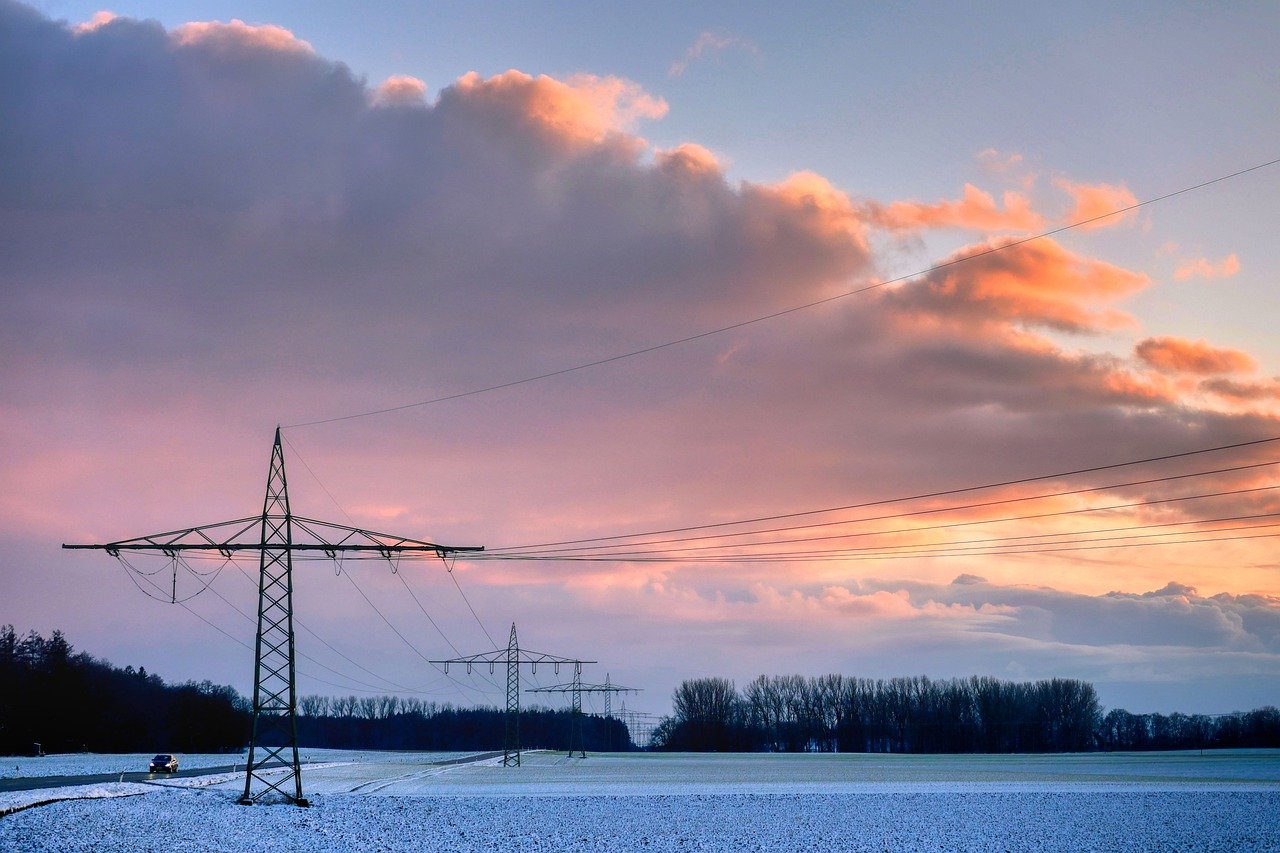
Home Improvements
When it comes to enhancing your home's energy efficiency, can make a world of difference. Think of your home as a living organism; every upgrade you make is like giving it a shot of vitamins, helping it to function better and more sustainably. From insulation to appliances, each improvement contributes not only to your comfort but also to your wallet. So, let’s dive into some of the most effective upgrades you can consider to achieve a more energy-efficient home.
One of the first areas to look at is insulation. Proper insulation acts as a barrier against heat loss in the winter and heat gain in the summer, ensuring that your home remains at a comfortable temperature year-round. In fact, according to the U.S. Department of Energy, homeowners can save an average of 15% on heating and cooling costs by upgrading insulation. Whether it's adding insulation to your attic, walls, or even floors, the investment pays off quickly.
Next up, let’s talk about windows. Old, drafty windows can be a major source of energy loss. Replacing them with energy-efficient windows can significantly reduce your energy bills. These windows are designed to minimize heat transfer and often come with features like low-emissivity (Low-E) coatings that reflect heat back into your home during winter while keeping it out during summer. Imagine your home becoming a cozy retreat in winter without skyrocketing heating bills—sounds good, right?
Don't forget about your appliances. Upgrading to energy-efficient models can lead to substantial savings over time. Look for appliances that have the ENERGY STAR label, which signifies that they meet strict efficiency guidelines set by the U.S. Environmental Protection Agency. For example, replacing an old refrigerator with a new ENERGY STAR model can save you over $200 in energy costs over its lifetime. It's like trading in a clunky old car for a sleek, fuel-efficient one—you're not just saving money; you're also doing your part for the planet.
Additionally, consider installing smart thermostats. These devices learn your heating and cooling patterns and adjust accordingly, optimizing energy use without sacrificing comfort. Imagine coming home to a perfectly heated space without having to remember to adjust the thermostat before you leave. Smart technology is not just a luxury; it’s a practical step toward energy efficiency.
In summary, making these home improvements is akin to giving your home a makeover that enhances not just its appearance but also its performance. By investing in insulation, windows, appliances, and smart technology, you’re not just saving money; you’re also contributing to a more sustainable future. Remember, every small change adds up to a big impact, so why not start today?
- What are the most cost-effective home improvements for energy efficiency?
Upgrading insulation, sealing drafts, and replacing old appliances with ENERGY STAR models are among the most cost-effective improvements.
- How much can I save by making these improvements?
Homeowners can save anywhere from 10% to 30% on their energy bills, depending on the improvements made.
- Are there any government incentives for energy-efficient home upgrades?
Yes, many governments offer tax credits and rebates for energy-efficient home improvements. Be sure to check local programs!

Behavioral Changes
When it comes to achieving energy efficiency, small can have a surprisingly large impact. Think about it: our daily habits often dictate how much energy we consume. By making a few conscious adjustments, we can significantly reduce our energy footprint without sacrificing comfort or convenience. For instance, how often do you leave the lights on in unoccupied rooms? Or forget to unplug devices that aren’t in use? These seemingly minor oversights can accumulate into substantial energy waste.
One of the simplest yet most effective changes is to turn off lights when leaving a room. This practice not only saves energy but also extends the life of your bulbs. Similarly, utilizing energy-efficient lighting, such as LED bulbs, can drastically reduce electricity consumption. Did you know that replacing just one incandescent bulb with an LED can save you about $80 over its lifetime? That’s a win-win situation!
Another impactful behavioral change is being mindful of heating and cooling. Setting your thermostat a few degrees lower in winter and a few degrees higher in summer can lead to significant energy savings. For example, adjusting your thermostat by just 1°F can reduce your energy bill by up to 3%. Additionally, wearing warmer clothing in winter or using fans in summer can help maintain comfort while minimizing energy use.
Moreover, consider your appliance usage. Many of us tend to run dishwashers and washing machines at peak hours, which can be less efficient. Instead, try running these appliances during off-peak hours when energy rates are lower. This not only saves money but also helps in balancing the overall demand on the energy grid. You might be surprised at how much you can save just by shifting your usage a little!
To make these changes easier, here are some practical tips:
- Set reminders on your phone to turn off lights and unplug devices.
- Create a checklist for energy-efficient practices around your home.
- Involve your family or roommates in energy-saving efforts—make it a fun challenge!
Incorporating these behavioral changes into your daily routine can lead to a more sustainable lifestyle. The key is to start small and gradually build on your efforts. Remember, every little bit counts! As you become more aware of your energy usage, you might even find yourself inspired to explore other ways to enhance your home’s efficiency.
Q: What are some easy ways to start saving energy at home?
A: Start by turning off lights in unoccupied rooms, using energy-efficient bulbs, and unplugging devices when not in use. Additionally, consider adjusting your thermostat and running appliances during off-peak hours.
Q: How much can I save by making small behavioral changes?
A: While it varies by household, many people report savings of 10-30% on their energy bills by adopting energy-efficient habits and practices.
Q: Are there any apps that can help me track my energy usage?
A: Yes! There are several apps available that can help you monitor your energy consumption and provide tips on how to save energy.
Q: Can community initiatives really make a difference in energy efficiency?
A: Absolutely! Community programs can foster collective action, leading to significant energy savings and environmental benefits when many individuals participate together.

Environmental Impact
When we talk about energy efficiency, we aren't just discussing the savings on our utility bills; we are diving into a much larger conversation about our planet's health. The connection between energy efficiency and is profound and multifaceted. By using less energy to perform the same tasks, we effectively reduce the demand for fossil fuels, which are the primary culprits behind greenhouse gas emissions. It's like taking a step back and realizing that every small action we take can ripple out into a much larger wave of positive change.
Imagine for a moment that each household in your community decides to adopt energy-efficient practices. The collective impact could be monumental. According to the U.S. Department of Energy, implementing energy-efficient technologies could reduce energy consumption by up to 30% or more. This means fewer power plants are needed, which translates to less coal mining, oil drilling, and natural gas extraction. Each of these activities contributes significantly to environmental degradation.
Moreover, energy efficiency plays a critical role in conserving natural resources. For instance, reducing energy consumption lessens the strain on our water resources, as many energy generation processes require substantial water for cooling and processing. By using energy more wisely, we not only save money but also protect our precious water supplies, ensuring that they remain available for future generations.
Let’s break it down further. Here are some key environmental benefits of energy efficiency:
- Reduction of Greenhouse Gas Emissions: Energy-efficient practices can lead to a significant decrease in carbon dioxide and other harmful emissions. This is crucial for combating climate change and improving air quality.
- Conservation of Resources: By using less energy, we conserve finite resources, ensuring that they are available for future generations.
- Decreased Air Pollution: With less reliance on fossil fuels, we can reduce air pollutants that cause health problems and environmental issues.
In essence, embracing energy efficiency is like giving our planet a much-needed hug. It’s a way to show that we care about the environment and are willing to make changes that lead to a sustainable future. Every time we choose to turn off a light, upgrade to energy-efficient appliances, or support policies that promote green technologies, we are making a statement. We are saying that we value our planet and want to protect it for ourselves and for future generations.
In conclusion, the environmental impact of energy efficiency cannot be overstated. It’s not just about saving a few bucks on your energy bill; it’s about creating a sustainable world where clean air, fresh water, and a thriving ecosystem are available for everyone. So, let’s take a moment to reflect on our daily habits and consider how we can contribute to this vital cause. Are you ready to join the movement towards a more energy-efficient and environmentally-friendly lifestyle?
- What is energy efficiency? Energy efficiency means using less energy to provide the same service, helping to reduce waste and conserve resources.
- How does energy efficiency benefit the environment? It reduces greenhouse gas emissions, conserves natural resources, and decreases air pollution, contributing to a healthier planet.
- What are some simple ways to improve energy efficiency at home? Upgrading to energy-efficient appliances, using LED bulbs, and improving insulation are effective ways to enhance energy efficiency.
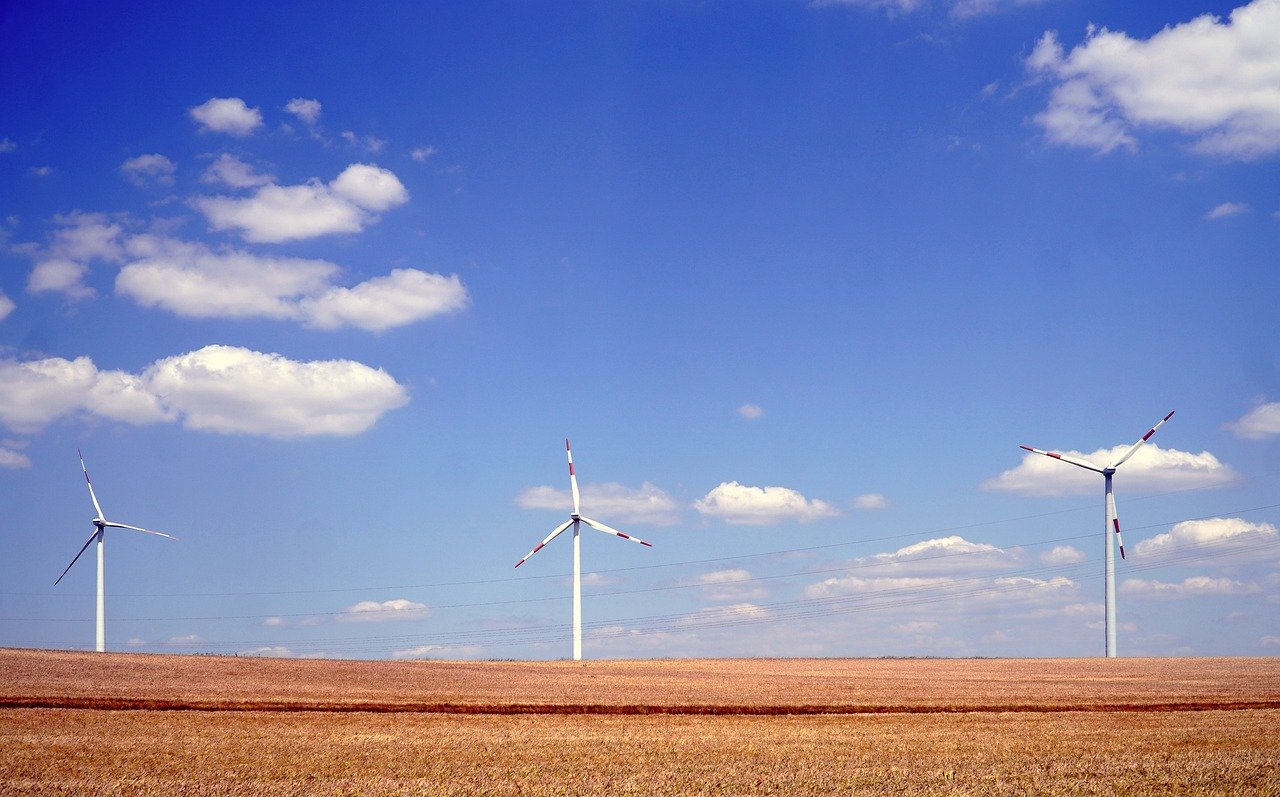
Strategies for Improving Energy Efficiency
Improving energy efficiency is not just a personal responsibility; it's a collective mission that can lead to significant environmental benefits. By adopting practical strategies, both individuals and businesses can contribute to a more sustainable future. One of the most exciting developments in this area is the rise of smart technology. These innovative devices are designed to optimize energy use, making our lives easier while helping the planet. For example, smart thermostats can learn your schedule and adjust heating and cooling accordingly, ensuring that energy is not wasted when you're not at home. Imagine walking into a perfectly heated or cooled room without having to touch a dial—this is the convenience that smart technology offers!
Moreover, implementing energy-efficient appliances is another crucial strategy. These appliances consume less energy than their traditional counterparts, which means you can save money while reducing your carbon footprint. When purchasing new appliances, look for the Energy Star label, which signifies that the product meets energy efficiency guidelines set by the U.S. Environmental Protection Agency. Investing in these products can lead to substantial savings over time, as illustrated in the table below:
| Appliance Type | Traditional Energy Use (kWh/year) | Energy Star Energy Use (kWh/year) | Annual Savings ($) |
|---|---|---|---|
| Refrigerator | 700 | 400 | $60 |
| Washing Machine | 500 | 300 | $40 |
| Dishwasher | 300 | 200 | $30 |
In addition to technology upgrades, behavioral changes can also lead to significant improvements in energy efficiency. Simple actions, such as turning off lights when leaving a room or unplugging devices that are not in use, can collectively make a big difference. Have you ever thought about how often you leave your phone charger plugged in? It may seem trivial, but these small habits add up! Consider setting reminders for yourself or your family to adopt these practices consistently.
Community initiatives also play a vital role in promoting energy efficiency. Local programs can provide resources, incentives, and education to help residents and businesses make more sustainable choices. For instance, some communities offer workshops on energy-efficient home upgrades or discounts for energy audits. Engaging in these community efforts not only helps individuals save money but also fosters a sense of collective responsibility towards our environment. By working together, we can amplify our impact and create a more sustainable energy future.
Ultimately, improving energy efficiency is an ongoing journey that requires both individual commitment and community collaboration. By embracing smart technology, investing in energy-efficient appliances, making behavioral changes, and participating in community initiatives, we can all contribute to a greener planet. So, what steps will you take today to enhance your energy efficiency?
- What is energy efficiency? Energy efficiency is the practice of using less energy to provide the same service, which helps reduce waste and conserve resources.
- How can I improve my home’s energy efficiency? You can improve your home’s energy efficiency by upgrading insulation, using energy-efficient appliances, and adopting smart technology.
- What are some simple behavioral changes I can make? Simple changes include turning off lights when not in use, unplugging devices, and using energy-efficient light bulbs.
- Why is community involvement important? Community initiatives can provide resources and support, fostering collective action towards energy efficiency and sustainability.
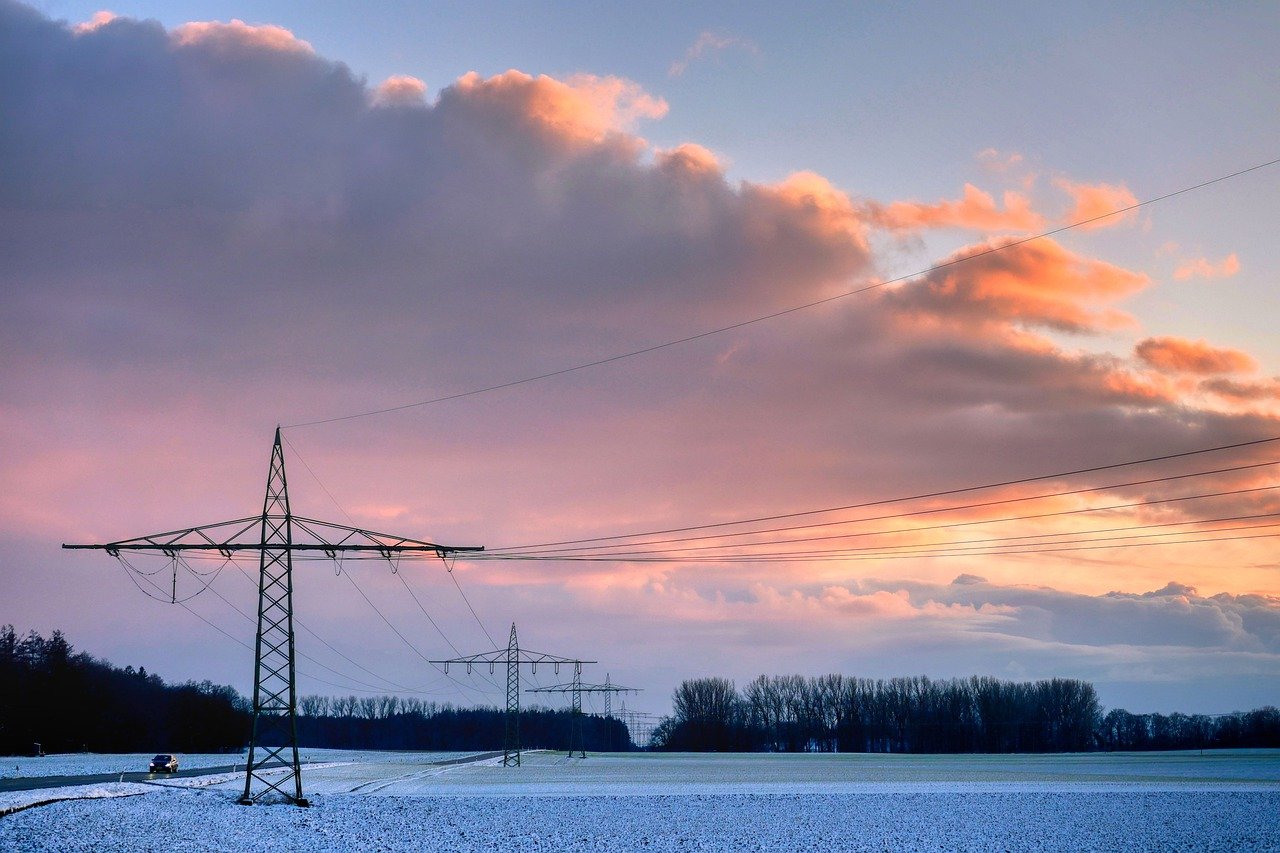
Smart Technology
In today's fast-paced world, is revolutionizing the way we manage energy consumption in our homes and workplaces. Imagine a world where your home can learn your habits, adjust the temperature automatically, and even remind you to turn off the lights when you leave a room. Sounds futuristic, right? Well, it's not just a dream anymore; it's a reality thanks to advancements in smart technology. These innovative devices not only enhance convenience but also play a crucial role in improving energy efficiency.
One of the standout features of smart technology is its ability to provide real-time data on energy usage. Devices like smart thermostats and energy monitors allow users to track their energy consumption patterns, making it easier to identify areas where they can cut back. For instance, a smart thermostat can learn when you’re home or away and adjust the heating or cooling accordingly, ensuring that energy isn't wasted on an empty house. This means that not only are you saving money on your energy bills, but you're also contributing to a greener planet.
Furthermore, smart technology can help automate energy-saving actions. For example, you can set your smart lights to turn off automatically at a certain time or when you leave the house. This level of automation ensures that energy is used only when necessary, significantly reducing waste. Additionally, many smart devices can be controlled via smartphone apps, giving you the power to manage your energy use from anywhere. Can you imagine being able to turn off your lights or adjust your thermostat while you're out shopping? It's all about making life easier while promoting sustainability.
Moreover, the integration of smart technology doesn't just stop at individual homes; it extends to entire communities. Smart grids, for instance, optimize energy distribution and consumption on a larger scale. They allow for better management of energy resources, which can lead to reduced reliance on fossil fuels and lower greenhouse gas emissions. In essence, smart technology creates a ripple effect, encouraging energy efficiency not just in your home but also within your community.
To illustrate the impact of smart technology, consider the following table that compares traditional energy management with smart energy management:
| Feature | Traditional Energy Management | Smart Energy Management |
|---|---|---|
| Energy Monitoring | Manual readings | Real-time data analytics |
| Control | Manual adjustments | Automated and remote control |
| Efficiency | Static consumption | Dynamic and optimized usage |
| Impact on Environment | Higher emissions | Lower emissions through efficiency |
In summary, smart technology is not just a trend; it's a vital component of modern energy efficiency strategies. By embracing these innovations, we can take significant steps toward a more sustainable future. Whether you're a tech enthusiast or someone just looking to save a few bucks on your energy bill, the benefits of smart technology are undeniable. So why not take the plunge and start integrating these smart solutions into your life? Your wallet and the planet will thank you!
- What is smart technology? Smart technology refers to devices that can connect to the internet and communicate with each other, allowing for automated and optimized energy management.
- How can smart technology help save energy? By monitoring energy usage in real-time and automating energy-saving actions, smart technology helps reduce waste and improve efficiency.
- Are smart devices expensive? While some smart devices can have a higher upfront cost, they often lead to significant savings on energy bills over time.
- Can smart technology be used in communities? Yes, smart grids and community initiatives can leverage smart technology for better energy management on a larger scale.

Community Initiatives
Community initiatives are the heartbeat of sustainable living, pulsating with the energy of collective action. When individuals come together to promote energy efficiency, the impact can be profound. Imagine a neighborhood where everyone is on the same page, working towards a common goal of reducing energy consumption. Not only does this foster a sense of community, but it also amplifies the benefits of energy-saving practices. Community programs can take various forms, from local workshops educating residents about energy-efficient practices to group purchasing programs that allow residents to buy energy-efficient appliances at discounted rates.
One of the most effective ways communities can promote energy efficiency is through the establishment of local energy cooperatives. These cooperatives empower residents to take control of their energy usage and costs. For instance, a community might band together to invest in solar panels, sharing the benefits and savings among all members. This not only reduces individual energy bills but also lowers the community's overall carbon footprint. Additionally, community gardens or green spaces can be designed with energy efficiency in mind, utilizing sustainable practices that minimize environmental impact while enhancing local biodiversity.
Furthermore, engaging local schools in energy efficiency initiatives can spark a passion for sustainability in the younger generation. Schools can implement programs that teach students about energy conservation, encouraging them to practice these habits at home. For example, students might participate in energy audits of their classrooms, learning firsthand how small changes can lead to significant savings. This educational approach not only benefits the environment but also cultivates a culture of sustainability that can last a lifetime.
To illustrate the impact of community initiatives, consider the following table that showcases successful energy efficiency programs across various communities:
| Community | Initiative | Impact |
|---|---|---|
| Greenwood | Solar Panel Cooperative | Reduced energy costs by 30% for participants |
| Sunnyvale | Energy Efficiency Workshops | Raised awareness and reduced energy usage by 15% |
| Maplewood | School Energy Audits | Increased student awareness and reduced school energy bills by 10% |
In conclusion, community initiatives are not just about saving energy; they are about building connections and fostering a culture of sustainability. By working together, communities can create a ripple effect that extends beyond individual homes to influence broader environmental change. So, the next time you think about energy efficiency, consider how you can engage with your neighbors and create a shared vision for a sustainable future. After all, as the saying goes, "Many hands make light work," and in the case of energy efficiency, those hands can help lighten the load on our planet.
Q: What are community initiatives in energy efficiency?
A: Community initiatives in energy efficiency are programs or projects that bring together residents to promote energy-saving practices and technologies. These can include cooperative buying groups, educational workshops, and community energy audits.
Q: How can I get involved in my community's energy efficiency initiatives?
A: You can start by attending local meetings, joining neighborhood associations, or volunteering for community projects focused on sustainability. Many communities also have online platforms where residents can share ideas and resources.
Q: What are the benefits of participating in community energy initiatives?
A: Participating in community energy initiatives can lead to cost savings on energy bills, increased awareness of sustainable practices, and a stronger sense of community. Additionally, collective action can lead to more significant environmental impacts.
Frequently Asked Questions
- What is energy efficiency and why is it important?
Energy efficiency means using less energy to achieve the same tasks or services. It's crucial because it helps reduce waste, conserves natural resources, and lowers energy costs, making our lives more sustainable and comfortable.
- How can I save money through energy efficiency?
Implementing energy-efficient practices can lead to significant savings on your energy bills. Simple changes like upgrading to energy-efficient appliances, improving insulation, and using smart technology can reduce your consumption and save you money over time.
- What home improvements can enhance energy efficiency?
Upgrading your home can involve several key improvements, such as installing better insulation, replacing old windows, and choosing energy-efficient appliances. These upgrades not only help save energy but also improve your home's comfort and value.
- What are some easy behavioral changes I can make?
Small lifestyle changes can have a big impact! Simple actions like turning off lights when you leave a room, unplugging devices when not in use, and using LED bulbs can contribute to significant energy savings.
- How does energy efficiency affect the environment?
Energy efficiency plays a vital role in reducing greenhouse gas emissions. By using less energy, we decrease our carbon footprint, contributing to a healthier planet and combating climate change.
- What smart technologies can help improve energy efficiency?
Smart technologies like smart thermostats, energy monitors, and automated lighting systems can optimize your energy use. These devices help you manage your consumption more effectively, leading to greater savings and efficiency.
- How can community initiatives promote energy efficiency?
Community programs can raise awareness and encourage collective action towards energy efficiency. Local initiatives may include workshops, energy audits, and incentives for residents to adopt sustainable practices, fostering a stronger commitment to a greener future.





